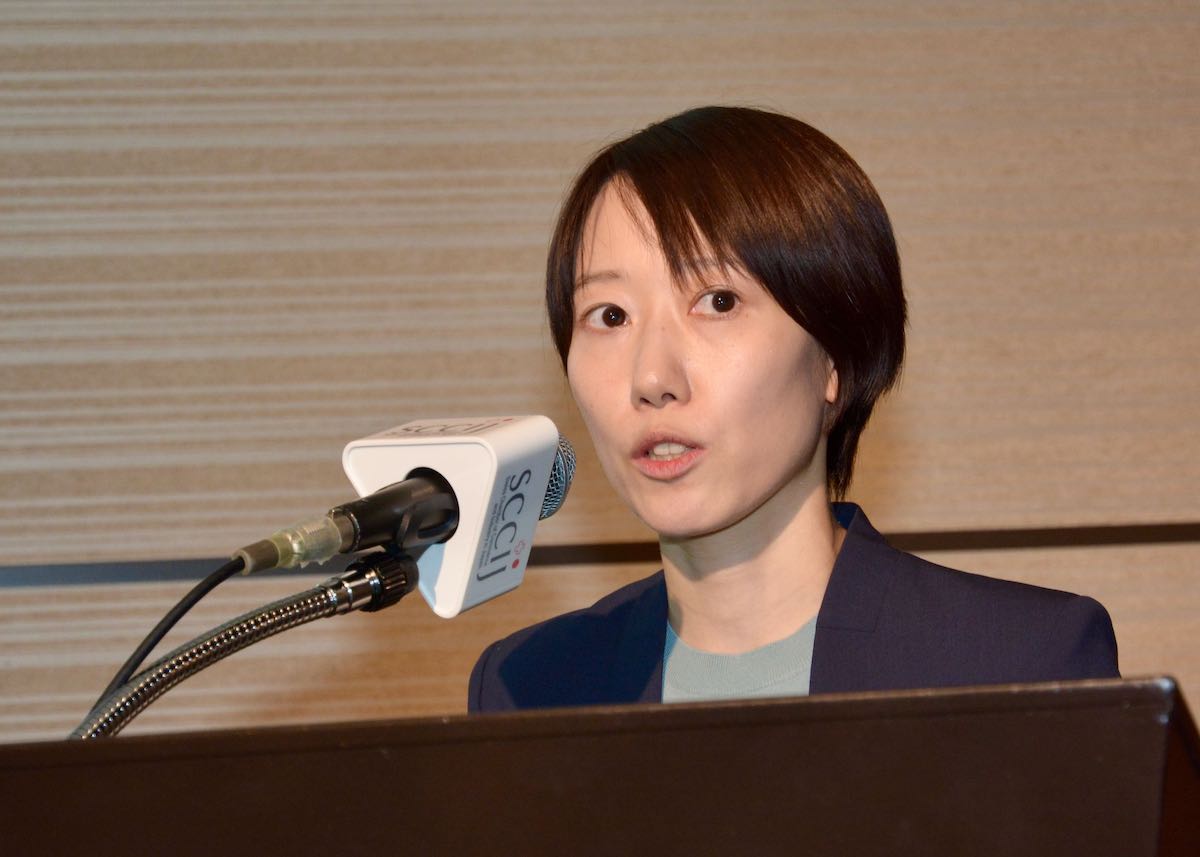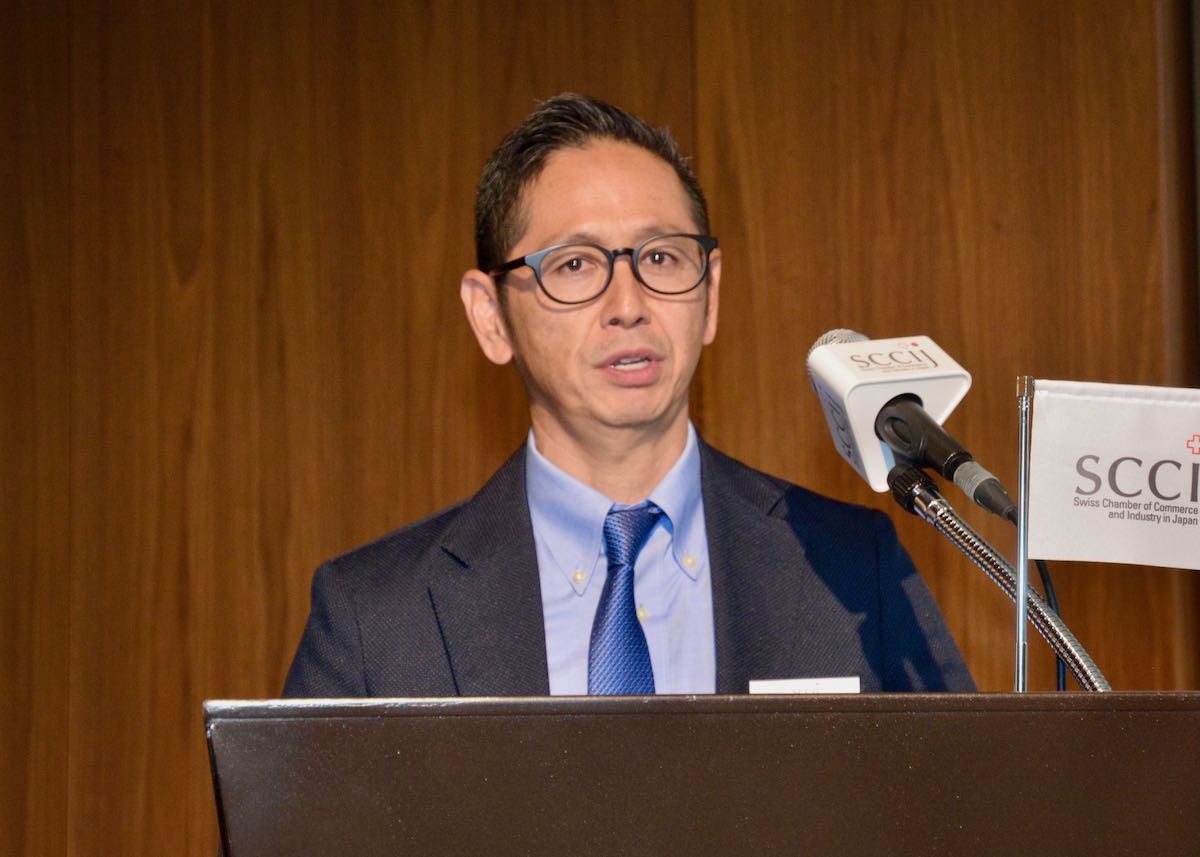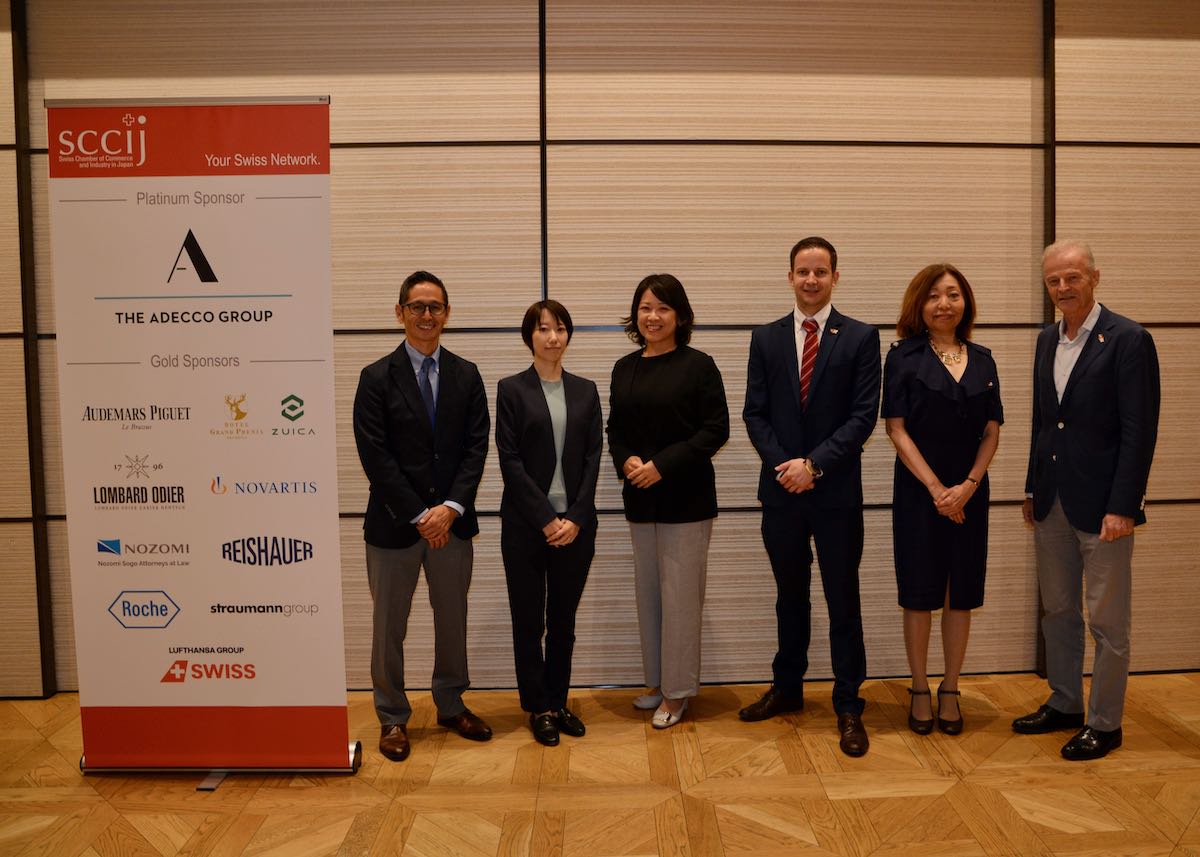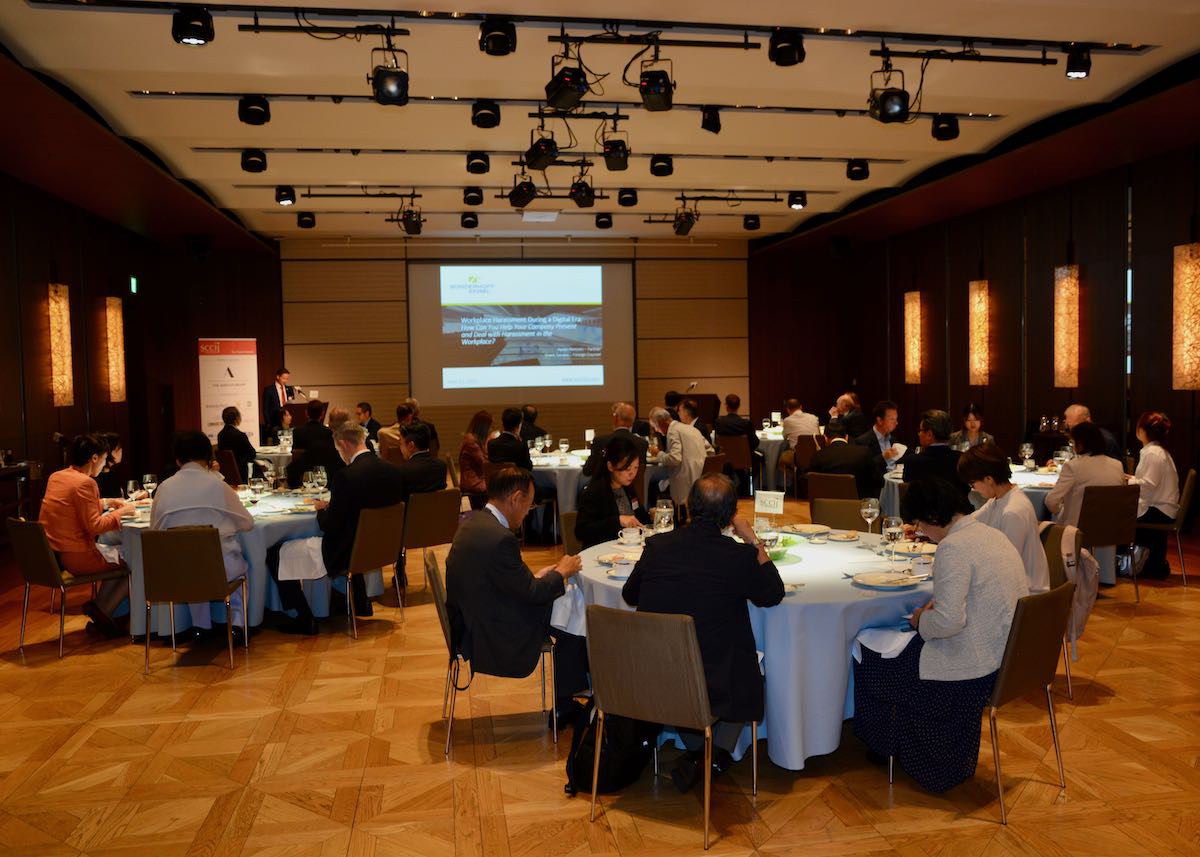Tokyo (SCCIJ) – The June luncheon speeches gave about 40 members and guests of the Swiss chamber insights into how companies can deal with the challenges resulting from harassment at the workplace such as sexual, power, maternity, and “remote” harassment. The speakers were Ms. Ayuko Nemoto, Partner, and Mr. Grant Tanabe, Foreign Law Counsel at Sonderhoff & Einsel Law and Patent Office. We present their speeches in Q&A form.

June Luncheon Speaker Ms. Ayuko Nemoto, Partner at Sonderhoff & Einsel Law and Patent Office.
The word “hara” has become very popular in Japan. It started with “sekuhara” or “sexual harassment”, expanded to “pawahara” (power harassment) and during the pandemic, “remohara” for “remote work harassment” started. What is remohara?
Ms. Ayuko Nemoto: There is no definition for “remohara” in the law. Remote workers are in their homes, and some bosses were forcing female employees to show their apartments or work room and other private items. This can be considered as sekuhara. There were also cases where remote workers were required to switch on their camera and microphone all the time or they were excessively asked to report the progress of their work. These are cases of pawahara.
What are the reasons for the rise of “remote work harassment”?
Mr. Grant Tanabe: Many cases are just an extension of classic “power harassment”. What happened before in the office, now happens during telephone and video calls with the remote worker. Also, managers had difficulties adjusting to remote work because of the lack of communication with their subordinates. Before, everybody was sitting in an office together, but now, the instruments for supervision and control of remote workers are lacking so you see more remohara going on.
How prevalent is workplace harassment in Japan?
Ms. Ayuko Nemoto: The number of labor counseling cases for harassment grew during the last 20 years from 6,600 to 86,000 cases, and harassment is the top reason for admitted workers’ compensation cases. In the past three years, 48% of companies received power harassment claims. 31% of employees reported that they experienced power harassment. 10% reported sekuhara and 26% maternity harassment (against pregnant women).

: June Luncheon Speaker Mr. Grant Tanabe, Foreign Law Counsel at Sonderhoff & Einsel Law and Patent Office.
How does harassment affect the workplace?
G. Tanabe: Harassment can negatively affect the physical and mental health of the employee involved and may reduce the productivity and morale of employees who witness the harassment. If a company tolerates harassment, it can result in higher job turnover, risk the reputation of the company, cause a government investigation and lead to high litigation costs. A company might be even labeled a “black” company.
What is “power harassment” exactly?
A. Nemoto: The Ministry of Health, Labor and Welfare defines power harassment as words or acts which satisfy the following three requirements: a) which are said or done by taking advantage of the superior relationship in the workplace; b) which go beyond the necessary and reasonable scope of work; and c) which harms the working environment of the employee.
G. Tanabe: The main question to be asked is whether any requests and instructions are within the appropriate scope of business. There can be physical or mental assault, isolation, excessive work demands (like unnecessary or impossible work), requesting menial tasks which are far below the employee’s ability or experience, and breach of privacy (for example, excessively inquiring into private affairs of the employee).

: Members and advisors of the SCCIJ Executive Committee with June Luncheon speakers Ms. Ayuko Nemoto and Mr. Grant Tanabe.
What are your recommendations in case of sexual harassment in your company?
A. Nemoto: An employer should consider different types of disciplinary actions based on the different types of sexual harassment acts: A warning for inappropriate oral statements not on a continuous basis; a stay-at-home order, and/or demotion for oral statements repeated over a long period and such statements harm the workplace environment; a stay-at-home order or disciplinary dismissal for oral statements if the harasser has been disciplined before; and a disciplinary dismissal for physical touching of inappropriate areas, forceful kissing or other similar acts.
What are the potential measures for a company to prevent and deter workplace harassment?
G. Tanabe: We suggest various approaches. A message from the top makes it clear that harassment is on the radar of management and will not be tolerated. Employees and managers should receive some training to raise the level of awareness. A company should determine and announce an anti-harassment policy and make available its rules and regulations for such cases. Another key measure is having a consultation hotline or point of contact for employees to reach out to. In case of harassment, an outside third party such as a law firm could be used as a point of contact.
What options does a company have to decide on harassment cases?
A. Nemoto: Generally speaking, a company should create a complaint and investigation workflow as an established procedure if somebody complains about harassment. For example, the investigation starts with a neutral and objective interview of the victim, followed by a request to the accused to respond to each allegation separately.
G. Tanabe: The company should also explain its decision to the victim, offer the option of transferring to a different department or location, consider obtaining an apology from the accused if appropriate, and offer mental health counseling. The reprimands and other measures like a warning, salary decrease, or demotion should be based on the work rules of the company.

The SCCIJ June Luncheon at the Grand Hyatt Hotel was fully booked.
About the speakers
Ms. Ayuko Nemoto’s practice focuses on Japanese employment law issues, domestic and international corporate alliances, venture support businesses, and other corporate issues. She is also an active speaker on Femtech – a term that combines female and technology – and the legal issues that surround technology that improves women’s lives and is geared toward their needs.
Mr. Grant Tanabe’s practice focuses on corporate and commercial transactions, including strategic transactions and relationships such as joint ventures, cross-border M&A, and private equity investments as well as technology licensing and servicing agreements. Mr. Tanabe also supports clients on labor and employment matters, including preventing and resolving harassment issues.
Text and photos: Martin Fritz





























